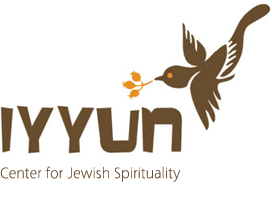Redeeming Our Name
The Hebrew title of the book of Exodus is Shemos, ‘Names’. This book begins when the Jews are still free people, and it lists the names of each family. However, as they descend into the Egyptian Exile, the Torah begins to refer to them not with names, but with pronouns: “They multiplied; they increased; the land was full of them…” (Exodus, 1:7)
When the Torah seems to give names to the two midwives, Shifra and Puah (Exodus, 1:15), these words are not really names, but descriptions of their work—beautifying, and cooing to the children (Talmud, Sotah 11b). When the Torah mentions the parents of Moshe, it only says, “A man from the house of Levi married a daughter from Levi” (Exodus, 2:1). When Moshe is born, the Torah does not say that his parents gave him a name.
Only free people have names. A slave is a nameless statistic, with no independent personal identity or existence. Likewise, when we are slaves to our emotions and reactions, we have no independence from the stimuli or influences in our lives. Look inward and ask yourself: ‘Where in my life do I lack an independent identity? Where do I react automatically to sensations, events or other people?’
The transition from namelessness to being a people with names occurs when Moshe begins to feel concerned and truly care for them. Now they have a leader who is one of them, who sees them as individuals, real people, not just statistics. Thus, in Exodus 6:14, the Torah begins reviewing the names of the households of the Jewish People.
Redeeming Our Voice
A slave has no voice. The Torah’s account suggests that the Jews in Egypt were silent until quite late in the period of exile. Perhaps they were too overwhelmed to feel anything, or perhaps they had become so accustomed to their harsh subservience, that they no longer noticed it. In any case, they were completely stuck, and not even a cry or groan could escape their lips.
The Chezkuni writes, that when the first King of Egypt finally died, the Jews realized that they might get an opportunity to rest briefly from their labors. Only when this thought crossed their minds, did they become aware of their exhaustion and trauma. With this glimmer of self-understanding, grief arose, and the yearning to be free. The Torah says, “and they groaned…and Hashem heard their groan….” ( Exodus, 2:23-24)
The Ohr HaChaim on this verse notes that a “groan” is not really an utterance or prayer, but simply a sound, a wordless cry of pain. Yet, he says, because they were able to soften and open themselves, Hashem heard their groan as a prayer. As they softened, so in a manner of speaking did Hashem. In response, Hashem began to open the way for their Redemption. Put in another way, this groan was enough to relax the inner hardness and rigidity that had accumulated within the slaves during their years of abuse. The sound raised their vibration, so to speak, and opened them up to sense their relationship with something greater–something outside their condition of slavery.
Redeeming Our Speech
The Zohar says that speech itself was exiled in Egypt (2: 25b). That is, even when the yearning for freedom awakened, the Jews could not articulate their thoughts. A slave cannot express or reveal who he really is, for his reality is imposed upon him. Speech implies choice; through language we define our reality. Neither can a slave truly listen to another person, or to hear the possibility that life can be different.
Even Moshe could not easily speak, although he was essentially above slavery, born,as he was, into the un-enslaved tribe of Levi, and raised as an Egyptian prince. At the Burning Bush, Moshe says of himself, “I am not a man of words, and I have a heavy (or hard) mouth” (Exodus, 4:10), and “…The people will not listen to my voice” (Exodus, 4:1). These statements are related: Moshe could not speak because the people were not yet open to listening. At the same time, the people were unable to listen because there was no one to speak for them. There was no opening.
Paradoxically, the most extreme embodiment of ‘stuckness’ in the whole story seems to be Pharaoh. He proclaims he is a god, and thus does not need to relieve himself (Midrash Shemos, 9:8). On the one hand, this represents self-sufficiency. On the other hand, it represents an absence of any intake or output. There is no flow of energy, as if there are no ‘openings’ in his body. This is the epitome of exile.
Moshe, with the help of Aharon, begins to overcome his speech impediment and to convey Hashem’s words to Pharaoh. Moshe also begins to speak to the slaves. When his words begin to affect the inner state, Pharaoh reacts and tells his task masters, “Tichbad Ho’Avodah,” ‘Harden upon them the work’ (Exodus, 5:9), and, ‘Make them work harder, because they are nirpim, lazy’ (Exodus, 5:17). The word nirpim comes from the word rofoh, ‘soft’. In other words, Pharaoh senses that the slaves have ‘softened’—something he cannot tolerate. In order to prevent any redemptive ‘opening’, Pharaoh commands them to harden again. However, the Redemption of speech is now inevitable.
A Mouth That Speaks
The Talmud says that the slaves were forced to do avodah perach, ‘harsh labor’. The word perach can be broken down into the two words, peh rach, meaning ‘weak mouth’ (See Sotah 11b). This symbolizes the fact that their faculty of speech was in exile. The word Pharaoh can also be pronounced ‘peh ra’, meaning ‘negative mouth’. This symbolizes the force of negativity and reactivity that sought to keep the Jews stuck and hardened. The Arizal says that one meaning of the word Pesach is ‘peh (a mouth) sach (speaks).’ The main mitzvah of the Seder is l’sapeir, to tell the story and pass it on to our children. As the Haggadah itself says, “Anyone who elaborates in speaking about the Exodus from Egypt, he is certainly praiseworthy.” When we have ‘a mouth that speaks’, we can liberate ourselves from our own ‘weak mouth’ and ‘negative mouth’.
At the Eighth Plague, an unprecedented fluency of speech appears. Eight, like fifty, represents going beyond the natural cycle of sevens, telling us that the attribute of Binah is full, and about to give birth. Moshe announces before Pharaoh, “So says Hashem… if you refuse to send forth My people, behold, tomorrow I shall bring a locust-swarm…” (Exodus, 10:3-4). Looking closely, we see that Hashem never instructed Moshe to announce the Plague of Locusts–Moshe said it on his own, Divine speech now spontaneously flowing through him.
Redeeming Our Song
We have gradually gained a ‘voice’, an independence over our reactivity. We have articulated ourselves, actively creating the story of our lives. Now the Divine speech is resonating through us. As the Haggadah crescendos into the praises of Hallel, we reach a sense of clarity, and our speech is elevated to the level of joyful song. We are the liberated ones singing at the Sea of Reeds, celebrating our birth into Redemption.
Redeeming Silence
At the peak of the Exodus, when the Jews are standing at the Sea of Reeds, Hashem asks Moshe, “Why do you cry out to Me? Speak to the people of Israel and they shall journey forward” (Exodus, 14:15). The entire process of the Exodus has been a journey from pre-sound, to sound, to language, and yet at the climax they are told to remain silent? The Zohar says that this event expresses the mystery of Atik, transcendence. Atik corresponds to the ‘silence beyond sound’. It is, in a sense, the opposite of the ‘silence before sound’, which muted the slaves, for it is a chosen and luminous silence. As we arrive at Nirtzah, the completion of the Seder, we have in fact come through the full spectrum of sound. Now, we are suspended in the blissful silence of two people in a deep relationship. There are no more questions. This silence is the answer — it is Redemption itself.









